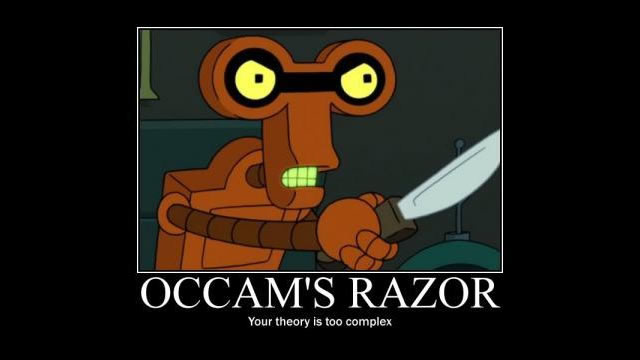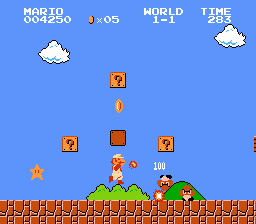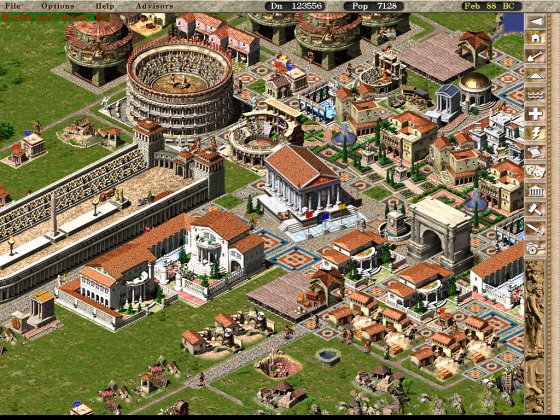sentrywiz
S
sentrywiz
Simplicity vs Complexity
Discussion on Mechanics
Creative Tutorial #1

Let's start this tutorial / discussion with two rather obvious
questions which will take the scope of this thread:
1. What is simplicity?
2. What is complexity?
Simplicity
Simplicity is meant as something simple to use and understand.
Simplicity doesn't cause or make the thing related dumb and stupid.
All it does is make it both simple to understand and simple to use.
When used properly, simplicity screams replayability and fun.
Because simple mechanics and design are easy to grasp, they always
make it easy for both player and developer to add on the foundation of
a game with simplistic mechanics.
Use with caution though, simplistic concepts can often turn games into
redundant, boring and repulsive experiences if used incorrectly. Though
the term "used incorrectly" is so relative to every person reading this,
I'm sure you can think of a game which is too simple for you. These games
have used simplicity to make the foundation and to upgrade on it. That's
why such creations are often seem as "stupid, boring games".
Simplicity should be used as a foundation of game rather than an upgrade
to an already existing game. The point of simplicity is how easy it is to "make"
a system of mechanics that will drive your map or game home. And once
you have a strong foundation, you can put whatever you want into your
creation, because its built on solid grounds.
Example:

Super Mario has a couple of simple mechanics that drive the game smooth:
- You move left right.
- You jump for up.
- You crouch or go in pipes for down.
- You attack by jumping on an enemy or shooting it (when you can)
- You pick up stuff by going near them which gives you stuff
I might have missed a few but it will do. These are the game's core
mechanics. From here on out, the game only grows in depth.
More levels, more enemy types, more puzzles, more stuff to pick up etc.
But fundamentally, these mechanics make the game viable for nearly
everyone that can pick up this game from day one and never stop playing
it. And YOU as a creator of this masterpiece, can always add-on it
because the game is in its core: Simplistic
Complexity
Now let's look at complexity. Complexity is meant as something that takes
time and sometimes effort to understand and use. Its something that is
sometimes on purpose and sometimes accidentally too complicated to be
shown and/or given to anyone to use and upgrade. I'm not saying this is
good or bad, you decide for yourself. Although at some point all games that
have been upgraded over time will reach a level of complexity and will no
longer be as easy to grasp and use as they were in the beginning, this
doesn't mean the game is now stupid and unusable.
Now, I'm not saying that complex games are bad. There are many complex
games that soothe the mind and add on creative playing. But all of these
games are games built-on simple grounds. With that being said, do take
in mind that complexity should be an upgrade to a game, rather than its
basic foundation.
Complexity should not be used as a core mechanic. Why not? Because
a game in its core should be as simple as possible. Complicated games
have a very narrow learning curve for new players and often have very
constricting tactics and styles of play. You can say that complex games
stop creativity rather than support it because of its massive overhead on
knowledge, time and effort required to understand these concepts.
Example:

Caesar games have always made me curious, but because of the starting
complexity of the game, I've never had the "urge" to learn it. I've tried
to brute force my way via replaying and trying, but I've never won one
single game. And eventually I uninstalled it because it was "dull".
Now I'm not saying Caesar is a very dull game. Far from it, I was fascinated
with it, but I wasn't able to break through the starting wall of complexity
that the game required of players in order to be "successful" at it. In my
mind however, this is a game that has way more complexity to simplicity
ratio, which is why I remember it as a "hard and dull game".
But what Caesar taught me is that if your game has a wall of complexity
that you require of players to know even before going into the game, then
you're doing it wrong. Its like studying something you find boring, and who
in their right mind would study something they find boring? But I digress,
maybe you are a person that likes that. To each their own. However, Caesar
will always remind me a game that too complex for me to unravel on my own.
Summary

This concept is as old, but very viable. I'd advise to tattoo it on your forehead. J/k
Simplicity works out best for you if you use it to build the foundation of your
creation. It doesn't matter what it is for. Base your projects on simplistic core
mechanics and design concepts.
Complexity is depth, and works out best for you if you use it to upgrade on
an already laid out creation. You can always add new, interesting mechanics
and stuff for the player to experience within the scope of your creation.
Example:
Think of it like drawing a picture. You want to draw a weapon. You don't
start from the corroded acid worn rusty parts of the stinky saber you would
call a WAR AXE OF ETERNAL... War? You start from the handle, or the blade
and use pencil with rubber. You re-do it until you're pleased with the basic
design. Once you're satisfied, now you can unleash your mind at it and
add all the magnificent and horrible things you want to it. Now its the time
to pull out your fancy pens with trillion colors and all the photoshop skills.
Hopefully this was a fun read for you. If not, cry me a river. Or burn me
in the comments below. All the freedom to you. Just keep it... simple, stupid?
Further References
Last edited by a moderator:




